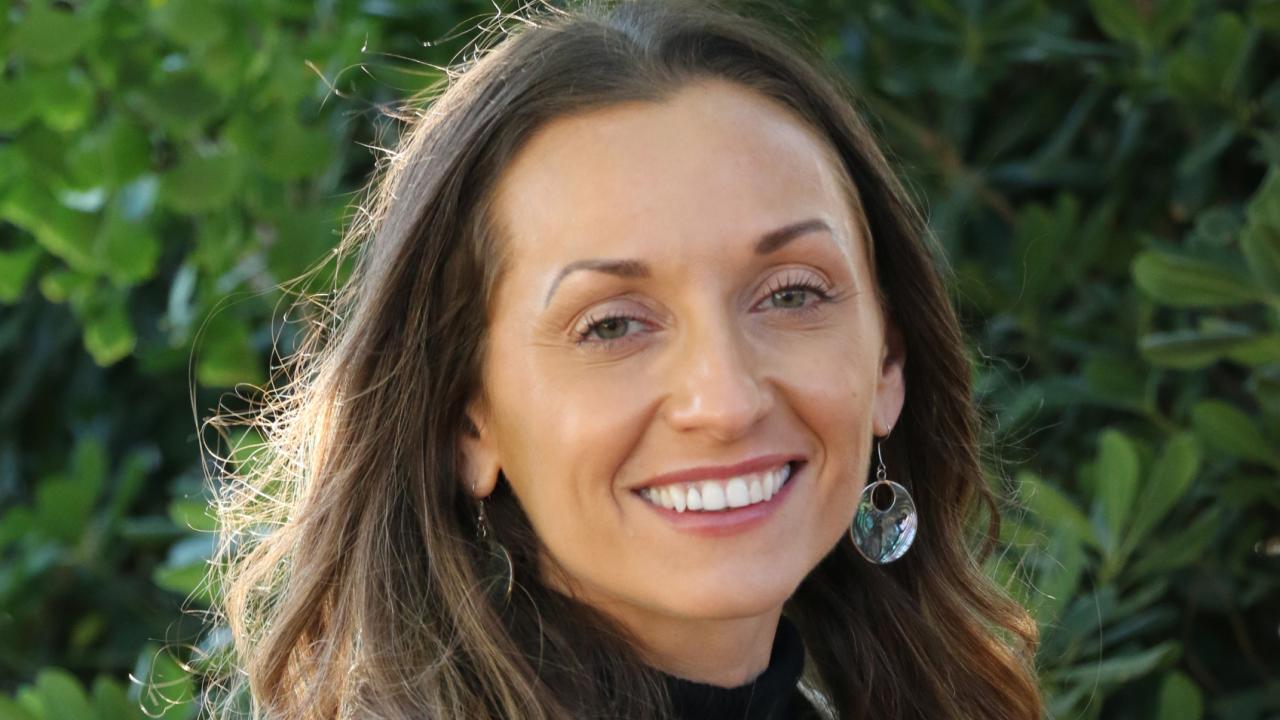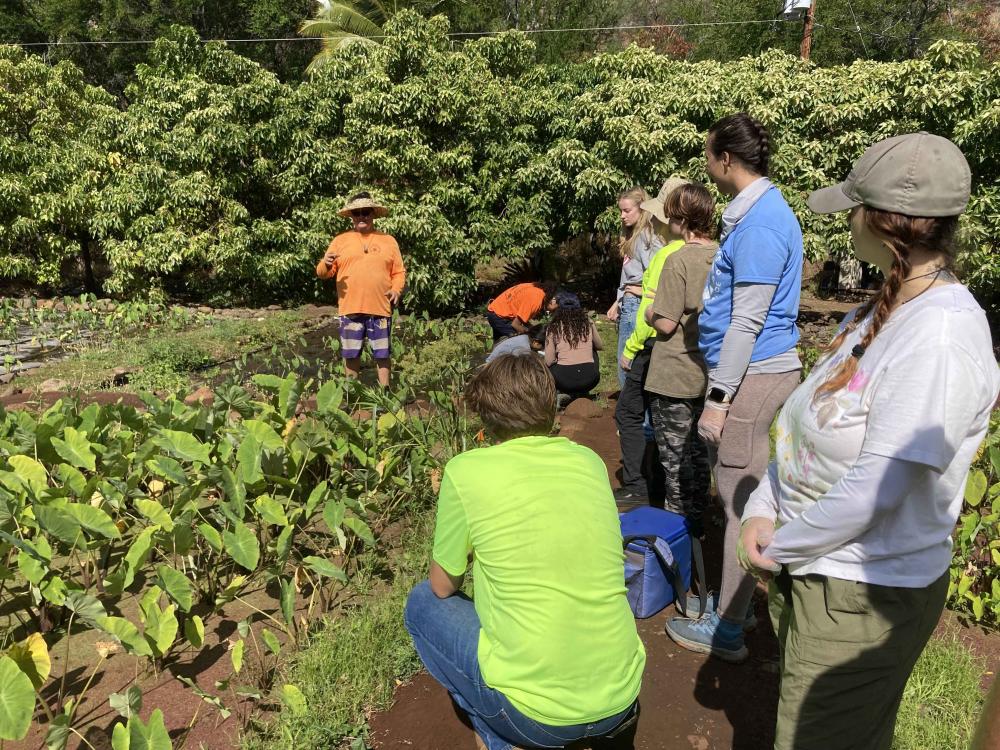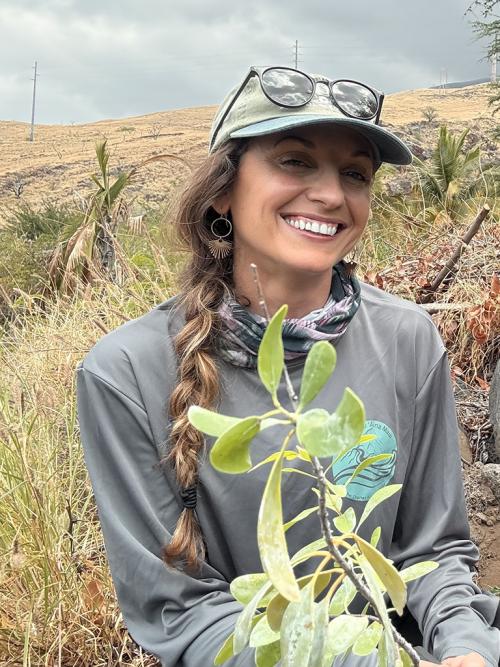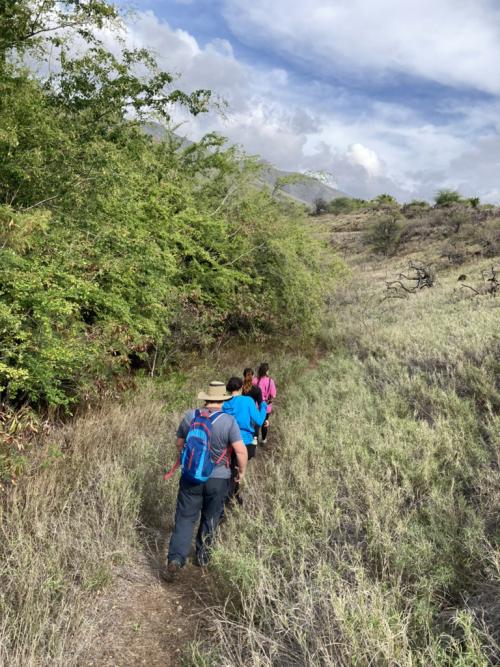
Meet Jadda Miller
Jadda Miller is an Environmental and Climate Justice Scholar at the UC Davis Institute of the Environment. Miller is a Ph.D. Candidate in Science Education and Native American Studies. Miller's research involves a collaborative, community-based project, informed by Native Hawaiian Traditional Ecological Knowledge and Western science, that aims to empower Maui high school students in grades 11 and 12, taking Field Ecology with knowledge, skills, and agency related to mitigating wildfire impacts and promoting social-ecological systems resilience.
What led you to want to study and research environmental solutions?
Jadda Miller: Growing up on a ranch in Northern California, I saw climate change directly impact my family's livelihood. This sparked my interest in environmental science broadly, ultimately leading to working in environmental education. During my undergrad, I studied sustainable agriculture and food systems at UC Davis. I became familiar with how climate impacts the environment and how it impacts communities around the world. The most vulnerable communities seem to endure the worst in terms of climate change impacts. That sparked my interest to learn more and was the initial catalyst for coming to UC Davis.
What are your most significant research accomplishments?
Jadda Miller: The most significant research accomplishments I’ve been part of have all been collaborative initiatives. One that stands out for me is when I was teaching seventh-grade science at Kihei Charter School in Maui – which is the school that I'm currently working with for my dissertation research. I got to work with the students on a research project about the impacts of non-reef-safe sunscreen on coral reef ecosystems and humans. During that time, it just so happened that there was a bill that came before the Maui County City Council to ban non-reef-safe sunscreen in Maui County. I was able to engage in policy work with my students. We gave oral and written testimony in support of the bill, and it passed. The Maui County Council recognized my students in the newspaper, and they were so excited, saying this was the best day of their lives. They felt like local celebrities. I feel like the research is most significant when it's community-based and you're engaging people in real things that are related to the places where they live and how it directly impacts them, while also empowering them with knowledge and opportunity to take action. Especially igniting that passion and sense of agency and empowerment within young people. Those are some of the moments when I feel most proud.


What are the short and long-term goals you hope to achieve with your research?
Jadda Miller: When we started this project, we knew it was a year-long pilot project. We wanted to see how people felt at the end of the year. Now that the end of the year is upon us, we're working together to apply for additional funding for the project - inviting partners in, and scaling it up. We can see what works and community partners are excited. I'm excited to see the next phase and the development that will happen over the next two years, with bringing on new partners, and what things we can do together. The project initiative, the goal, and the purpose that we're all sort of working towards is engaging youth in wildfire mitigation work, and engaging in that work alongside scientists and cultural practitioners, Kānaka ʻŌiwi (Native Hawaiians) are ordained to share traditional ecological knowledge with students. The biggest takeaway is that people are encouraged and want to participate. I love that it's locally based, and locally focused. In the long term, with an established network of partners, I hope it can sustain itself without institutional intervention.
It’s not about teaching students about wildfire mitigation practices, it's about getting them connected with the ʻāina (land). Hopefully, this will create healthier, thriving landscapes, and people. I think the more that we tend to the land and heal the land, we also, through that process, create what Beth Rose Middleton Manning, calls "hope and action". It's healing the inner garden as well as the outer garden.


How has your research influenced your thinking?
Jadda Miller: It's been a reminder of the power of doing work with communities, and how that continues to inspire and propel me. And I learn so much. I'm reminded every day of all the things that I don't know. I have the privilege of coming in as a researcher, and I'm humbled, honored, and grateful to be in those spaces. It's a humbling experience coming in and working with communities because there's such a wealth of knowledge, experience, and passion for these different spaces that we're working in and with. It's all deeply inspiring, and it gives me the energy that I need when I have to return home and back to the computer work and back to writing, which is all good too, but I think that the fieldwork is the parts of the whole thing, the whole research project that keeps me inspired.
Tell me about your typical day as a researcher.
Jadda Miller: It depends on the day. If I'm out in the field, working with the community, and I may be in the classroom with the students and Miss Cassie, my collaborator, and the field ecology teacher. I'll either be in a classroom with students, working on different projects like a documentary film they're producing, or we're also working on the results from the invasive species vegetation assessment that they did for our nonprofit partner, Kīpuka Olowalu. We recently finished up all the field trips. The last one happened in April and it was a beautiful culminating event. The students planted the native species that they grew in the classroom. It was special to take their plant babies out that they've tended and cared for months and plant them in the ground.
Those hands-on experiences are encouraging, and I hear time and time again how valuable they are. We were engaging in reflection with the students last time I was in Maui, and we asked them..."What would you change about the project? What would you improve? What would you keep the same?" They all agreed that they enjoyed working in the field and wanted to more often as that's when they learned the most. The hands-on learning leaves a lasting impact and memory. They're getting familiar with important and oftentimes endangered species. It's pretty special when they can name the plants by their Hawaiian name or scientific name. It's great to see them learning about these species that are so important to where they live.